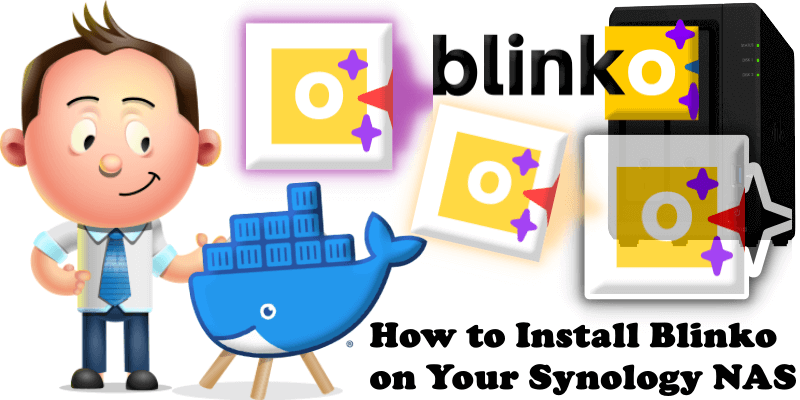
Blinko is an innovative, open-source project designed for individuals who want to quickly capture and organize their fleeting thoughts. Blinko allows users to seamlessly jot down ideas the moment they strike, ensuring that no spark of creativity is lost. In this step by step guide I will show you how to install Blinko on your Synology NAS using Docker & Portainer.
This guide works perfectly with the latest Blinko v1.8.5 release.
STEP 1
Please Support My work by Making a Donation.
STEP 2
Install Portainer using my step by step guide. If you already have Portainer installed on your Synology NAS, skip this STEP. Attention: Make sure you have installed the latest Portainer version.
STEP 3
Make sure you have a synology.me Wildcard Certificate. Follow my guide to get a Wildcard Certificate. If you already have a synology.me Wildcard certificate, skip this STEP.
STEP 4
Go to Control Panel / Login Portal / Advanced Tab / click Reverse Proxy. Follow the instructions in the image below.
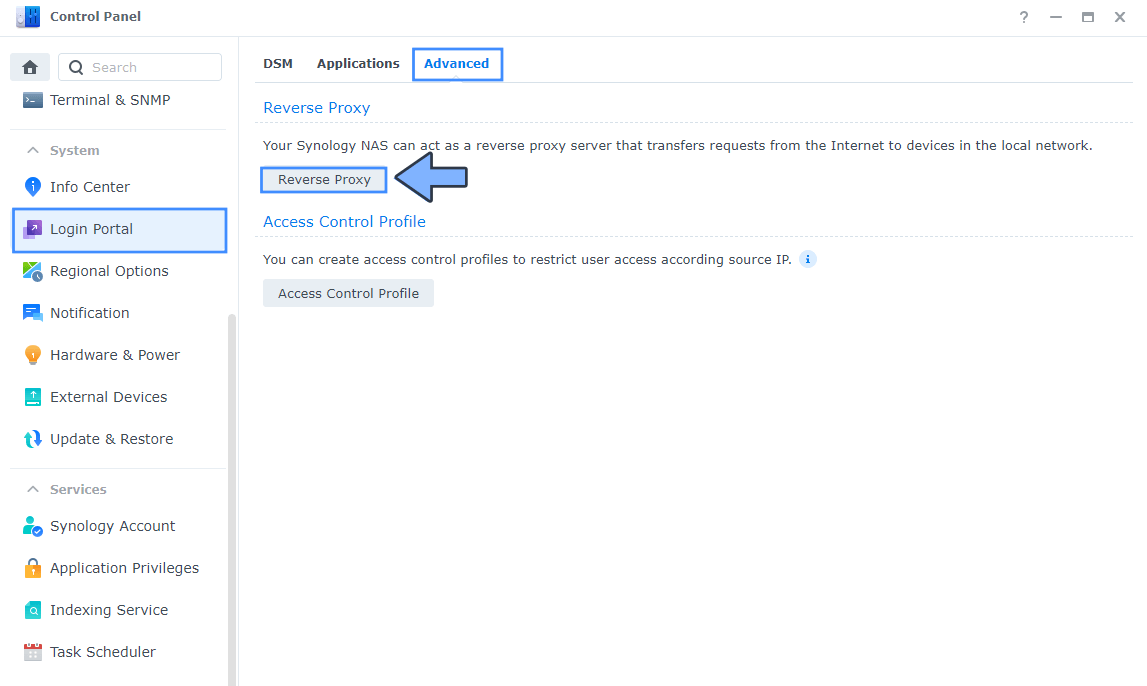
STEP 5
Now click the “Create” button. Follow the instructions in the image below.
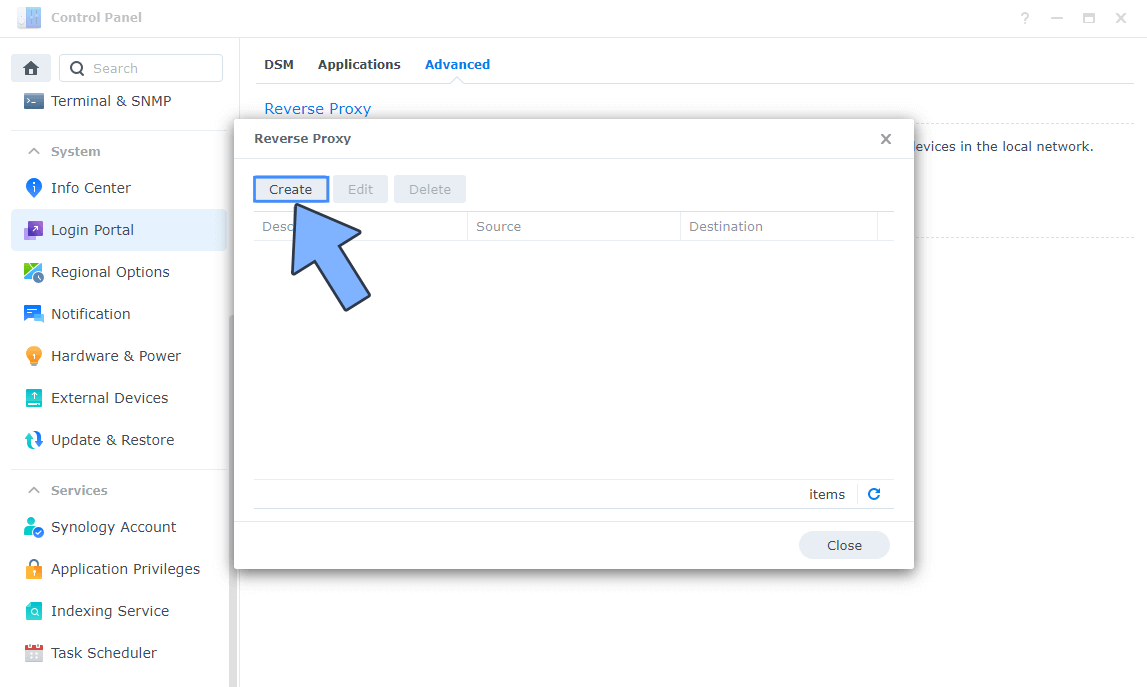
STEP 6
After you click the Create button, the window below will open. Follow the instructions in the image below.
On the General area, set the Reverse Proxy Name description: type in Blinko. After that, add the following instructions:
Source:
Protocol: HTTPS
Hostname: blinko.yourname.synology.me
Port: 443
Check Enable HSTS
Destination:
Protocol: HTTP
Hostname: localhost
Port: 1112
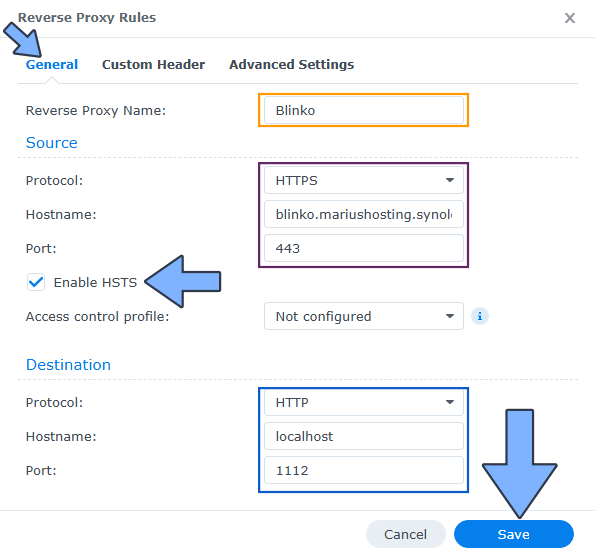
STEP 7
On the Reverse Proxy Rules, click the Custom Header tab. Click Create and then, from the drop-down menu, click WebSocket. After you click on WebSocket, two Header Names and two Values will be automatically added. Click Save. Follow the instructions in the image below.

STEP 8
Go to Control Panel / Network / Connectivity tab/ Check Enable HTTP/2 then click Apply. Follow the instructions in the image below.
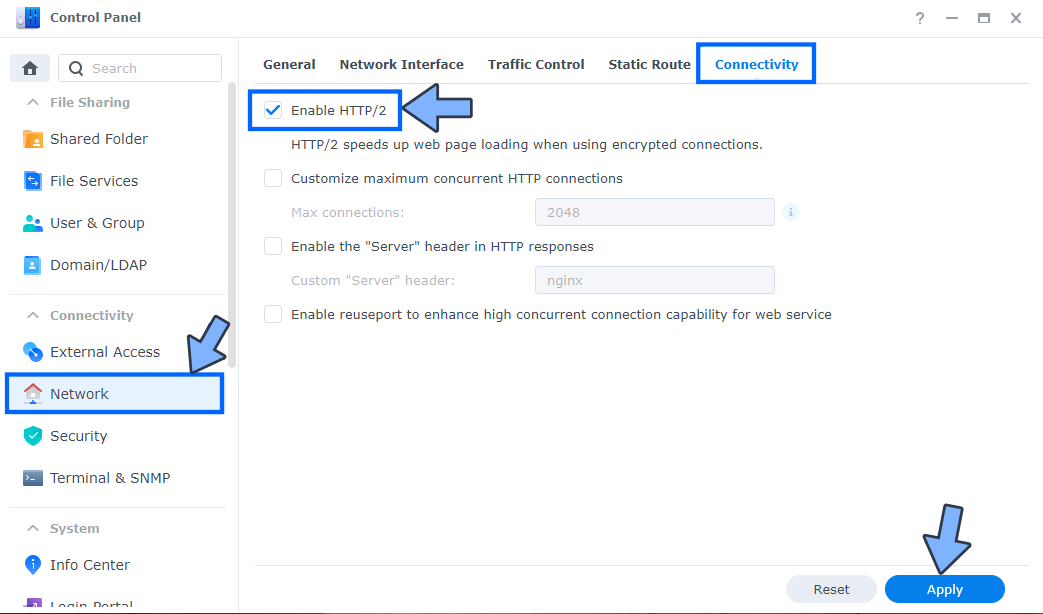
STEP 9
Go to Control Panel / Security / Advanced tab/ Check Enable HTTP Compression then click Apply. Follow the instructions in the image below.
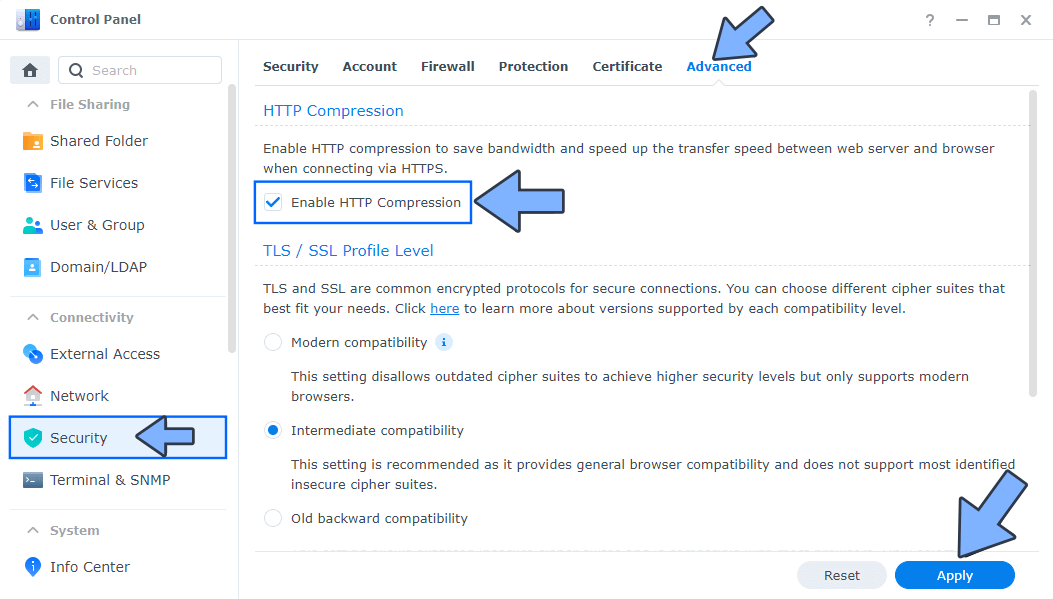
STEP 10
Go to File Station and open the docker folder. Inside the docker folder, create one new folder and name it blinko. Follow the instructions in the image below.
Note: Be careful to enter only lowercase, not uppercase letters.
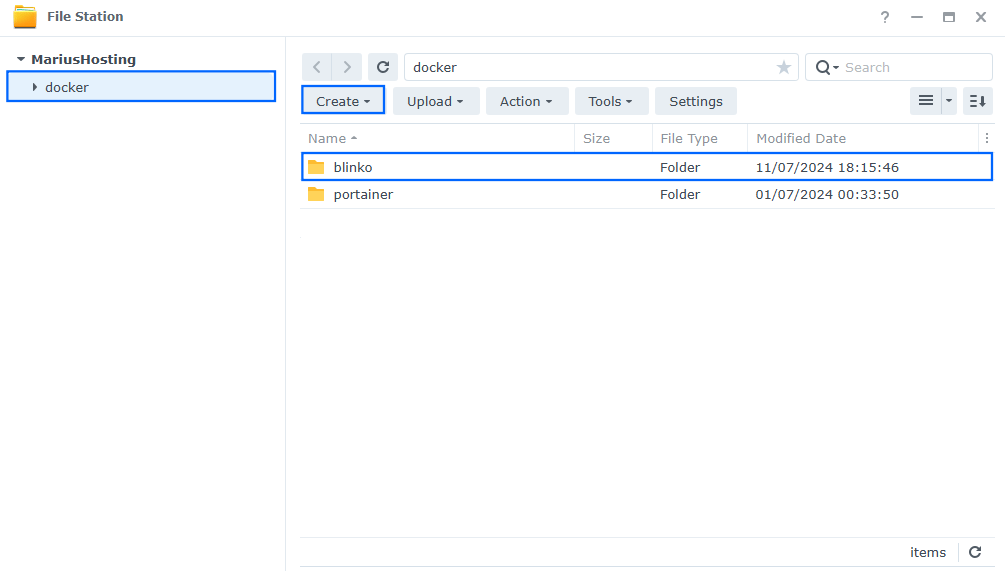
STEP 11
Now create two new folders inside the blinko folder that you have previously created at STEP 10 and name them data and db. Follow the instructions in the image below.
Note: Be careful to enter only lowercase, not uppercase letters.
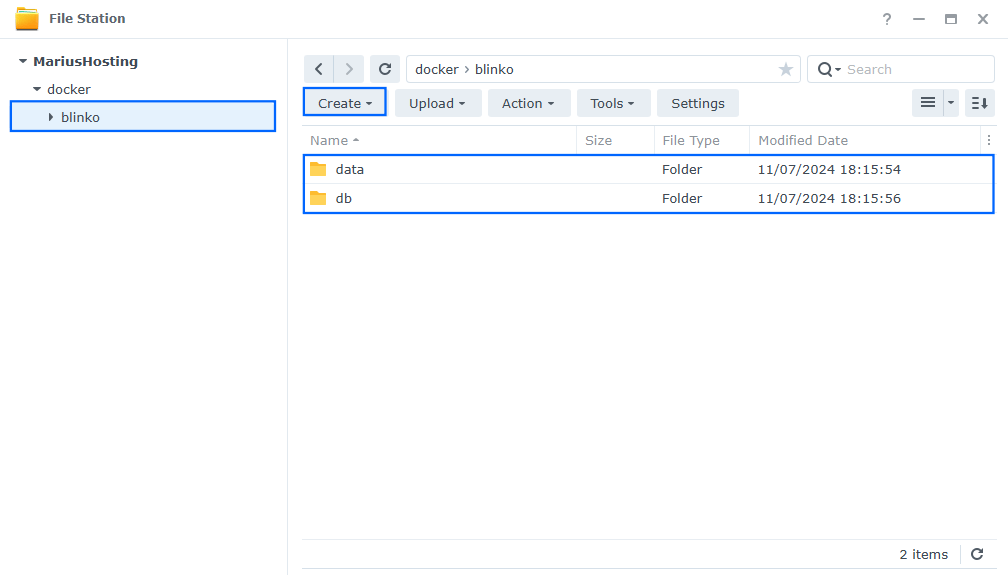
STEP 12
Log into Portainer using your username and password. On the left sidebar in Portainer, click on Home then Live connect. Follow the instructions in the image below.

On the left sidebar in Portainer, click on Stacks then + Add stack. Follow the instructions in the image below.

STEP 13
In the Name field type in blinko. Follow the instructions in the image below.
services:
db:
image: postgres:18
container_name: Blinko-DB
hostname: blinko-db
security_opt:
- no-new-privileges:true
healthcheck:
test: ["CMD", "pg_isready", "-q", "-d", "blinko", "-U", "blinkouser"]
timeout: 45s
interval: 10s
retries: 10
volumes:
- /volume1/docker/blinko/db:/var/lib/postgresql:rw
environment:
POSTGRES_DB: blinko
POSTGRES_USER: blinkouser
POSTGRES_PASSWORD: blinkopass
restart: on-failure:5
blinko:
image: blinkospace/blinko:latest
container_name: Blinko
environment:
NODE_ENV: production
NEXTAUTH_URL: https://blinko.yourname.synology.me
NEXT_PUBLIC_BASE_URL: https://blinko.yourname.synology.me
NEXTAUTH_SECRET: 3VZEVZ8vC8gjvRChDW8QRtQysSErPwqkR7vyMjIt3PiE3Xhf4Z5rTruf9YU6HxAf
DATABASE_URL: postgresql://blinkouser:blinkopass@blinko-db:5432/blinko
volumes:
- /volume1/docker/blinko/data:/app/.blinko:rw
logging:
options:
max-size: "10m"
max-file: "3"
ports:
- 1112:1111
depends_on:
db:
condition: service_healthy
restart: on-failure:5
Note: Before you paste the code above in the Web editor area below, change the value for NEXTAUTH_URL and type in your own synology.me DDNS with https:// at the beginning that you have previously created at STEP 6.
Note: Before you paste the code above in the Web editor area below, change the value for NEXT_PUBLIC_BASE_URL and type in your own synology.me DDNS with https:// at the beginning that you have previously created at STEP 6.
Note: Before you paste the code above in the Web editor area below, change the value for NEXTAUTH_SECRET. (Generate your own 64 length NEXTAUTH_SECRET.)
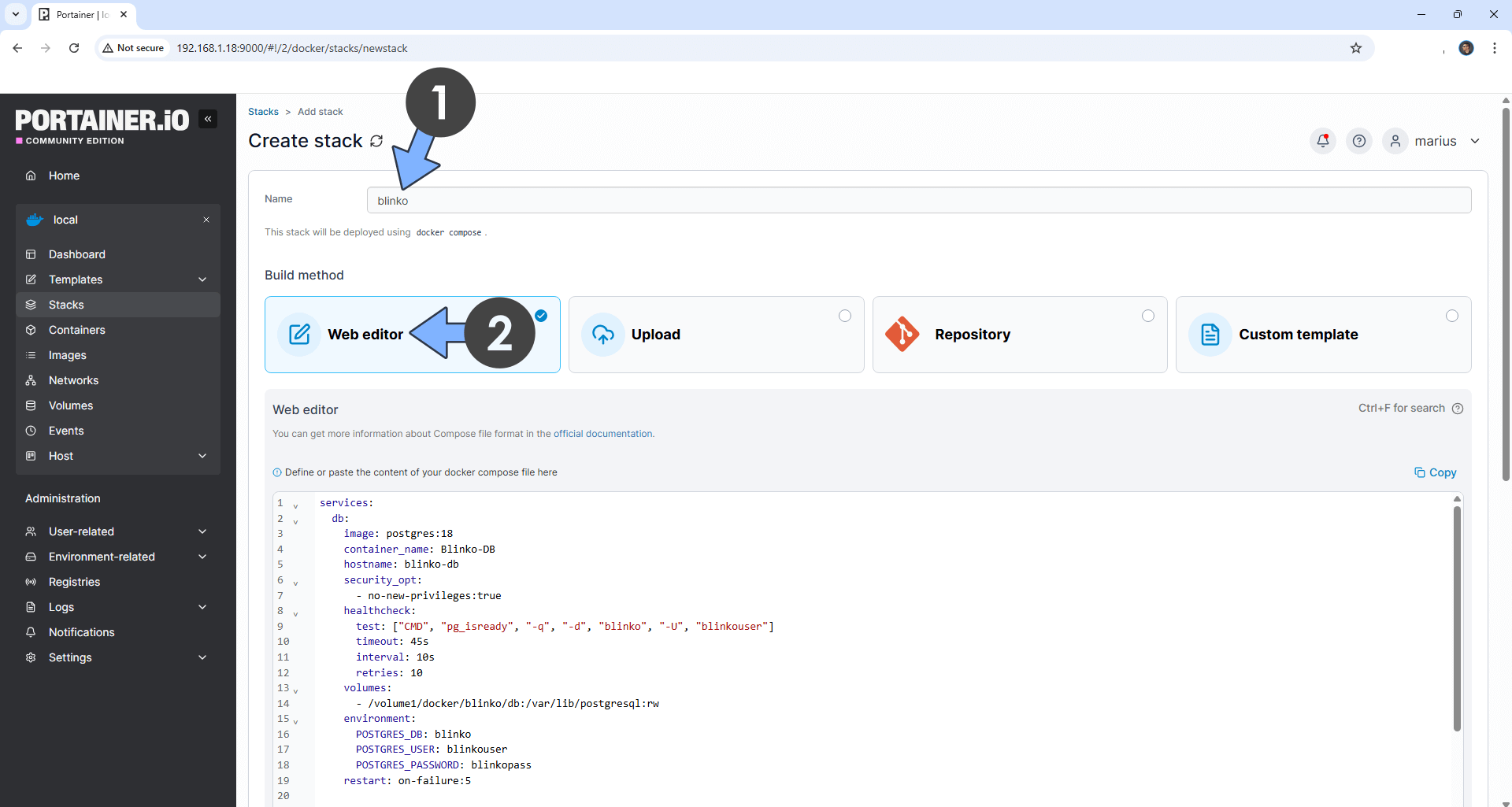
STEP 14
Scroll down on the page until you see a button named Deploy the stack. Click on it. Follow the instructions in the image below. The installation process can take up to a few minutes. It will depend on your Internet speed connection.
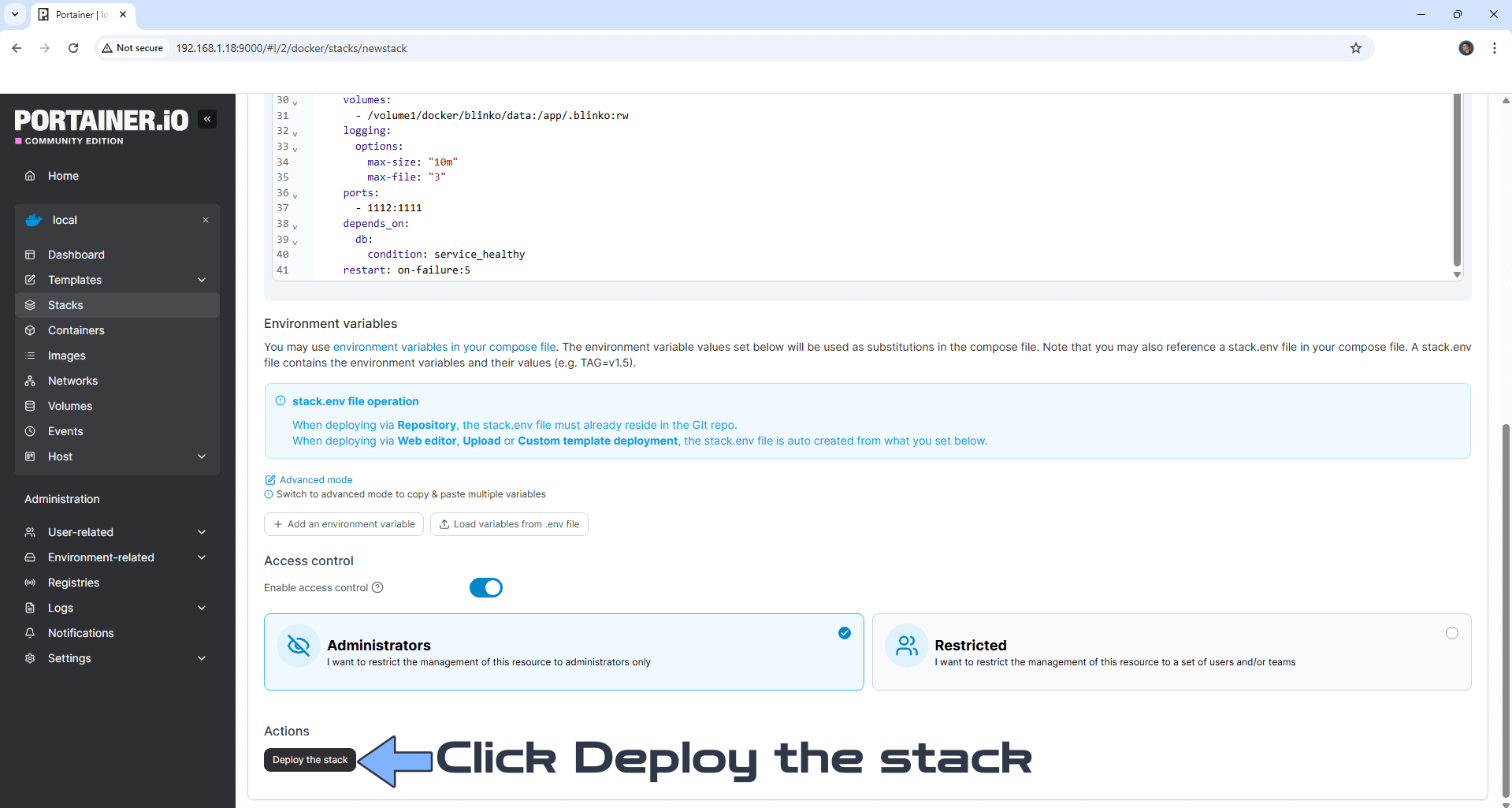
STEP 15
If everything goes right, you will see the following message at the top right of your screen: “Success Stack successfully deployed“.

STEP 16
🟢Please Support My work by Making a Donation. Almost 99,9% of the people that install something using my guides forget to support my work, or just ignore STEP 1. I’ve been very honest about this aspect of my work since the beginning: I don’t run any ADS, I don’t require subscriptions, paid or otherwise, I don’t collect IPs, emails, and I don’t have any referral links from Amazon or other merchants. I also don’t have any POP-UPs or COOKIES. I have repeatedly been told over the years how much I have contributed to the community. It’s something I love doing and have been honest about my passion since the beginning. But I also Need The Community to Support me Back to be able to continue doing this work.
STEP 17
Now open your browser and type in your HTTPS/SSL certificate like this https://blinko.yourname.synology.me/signup that you have previously created at STEP 6. In my case it’s https://blinko.mariushosting.synology.me/signup Type in your own Username and Password, then click Sign Up. Follow the instructions in the image below.
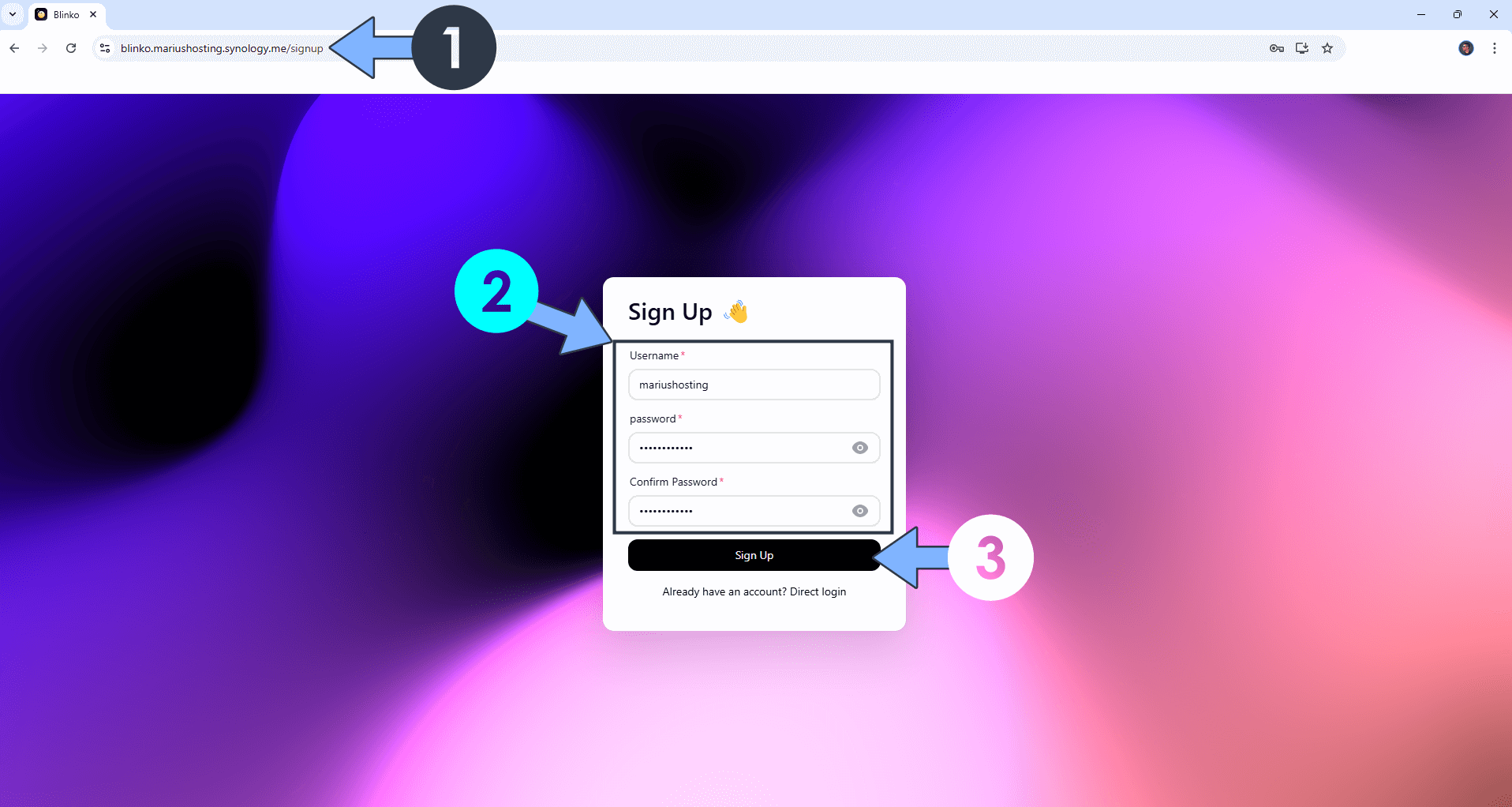
STEP 18
Type in your own Username and Password that you have previously created at STEP 17, then click Sign in. Follow the instructions in the image below.
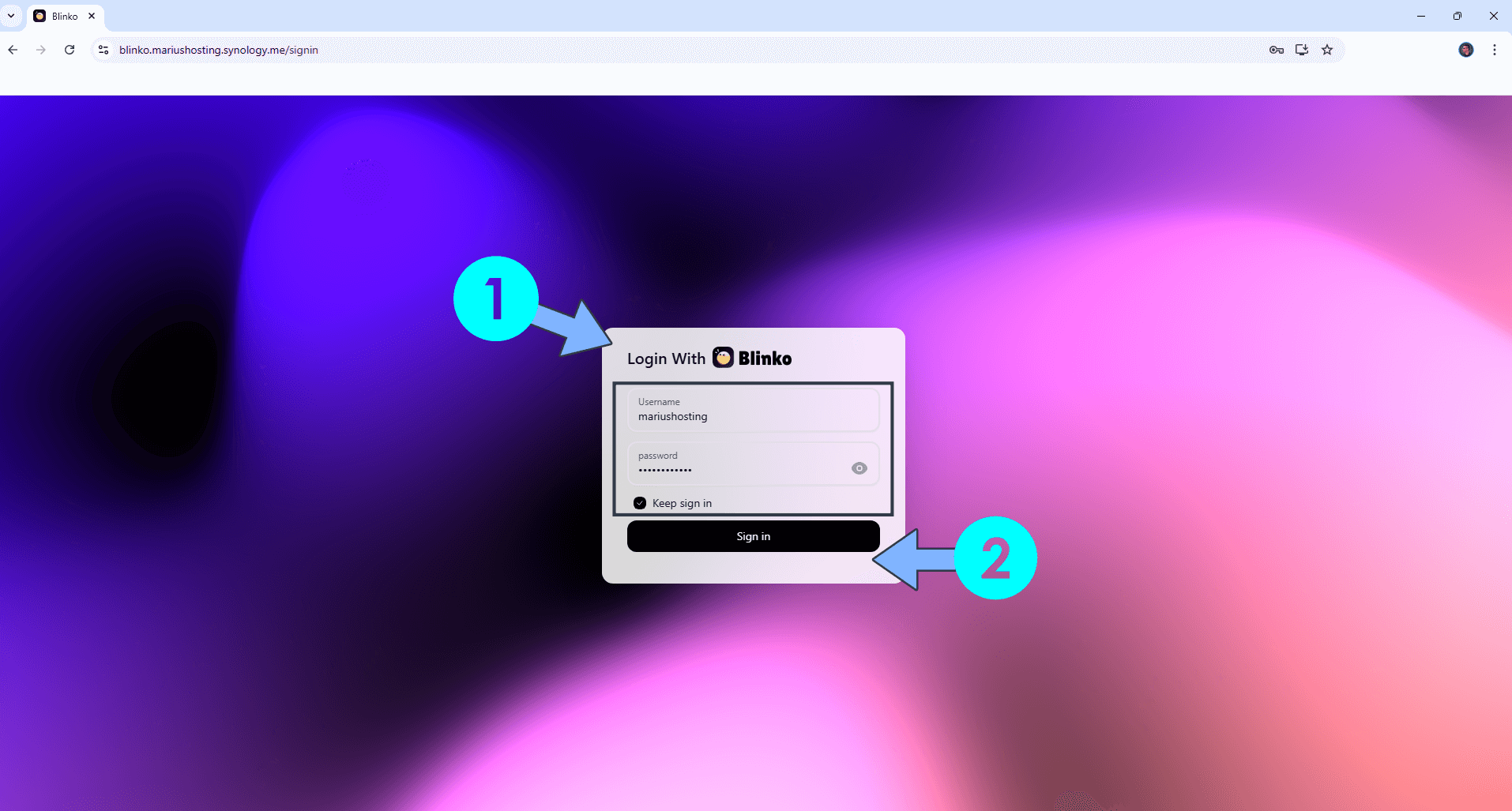
STEP 19
Your Blinko dashboard at a glance!
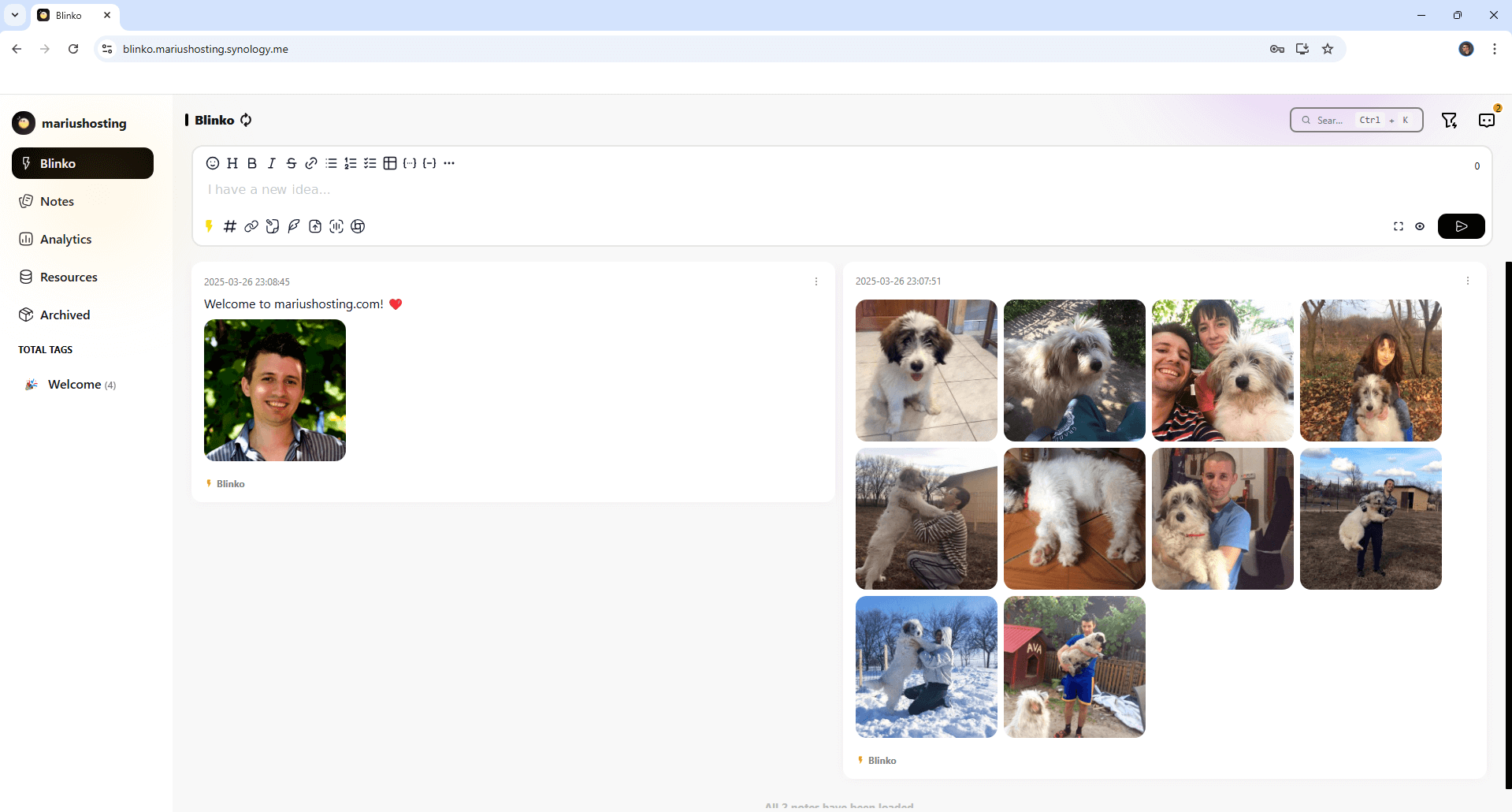
STEP 20
On the left sidebar, click on your Username then Settings. Click the Preference tab to personalize Blinko. Follow the instructions in the image below.
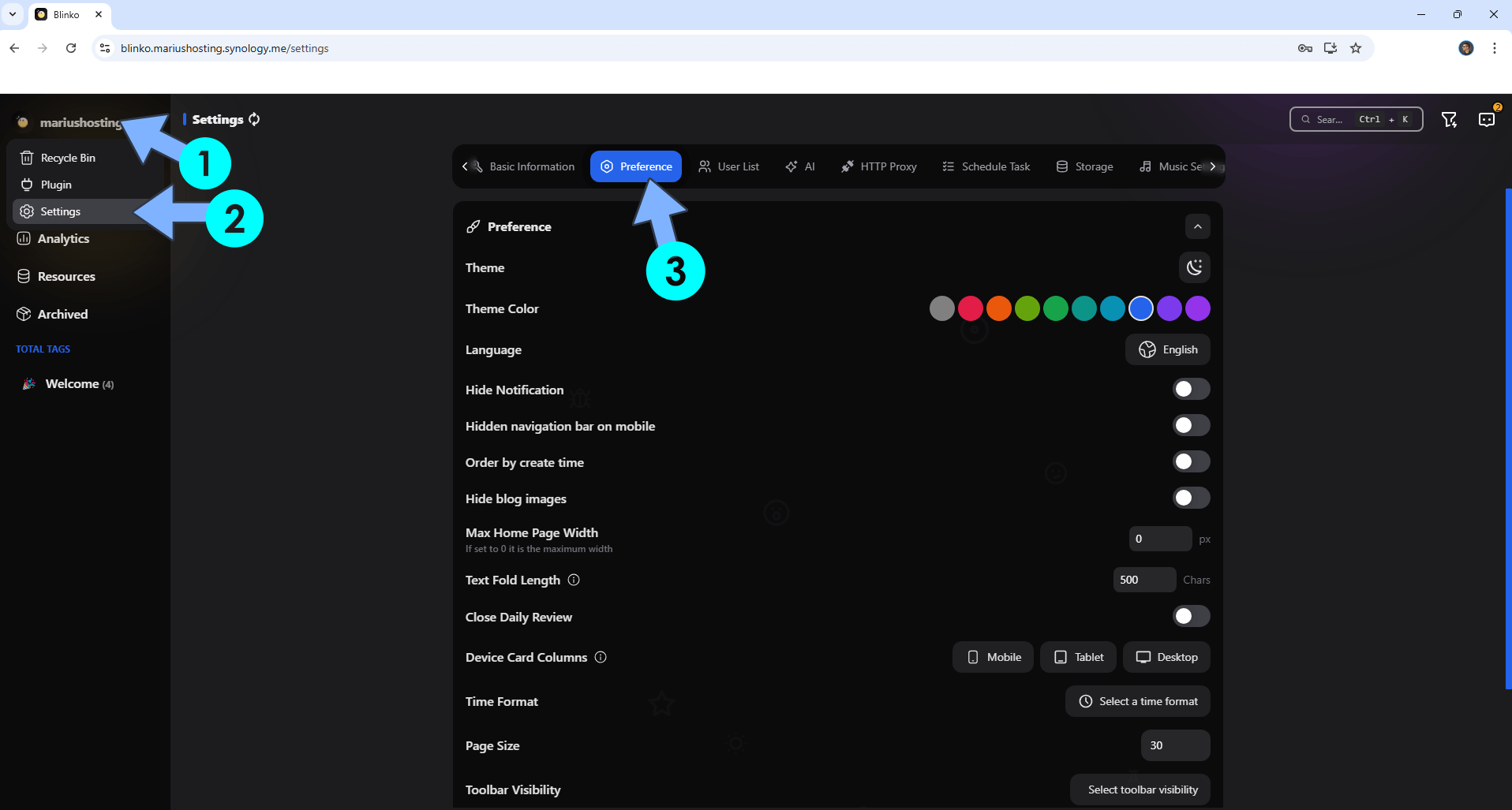
STEP 21
Blinko at a glance!
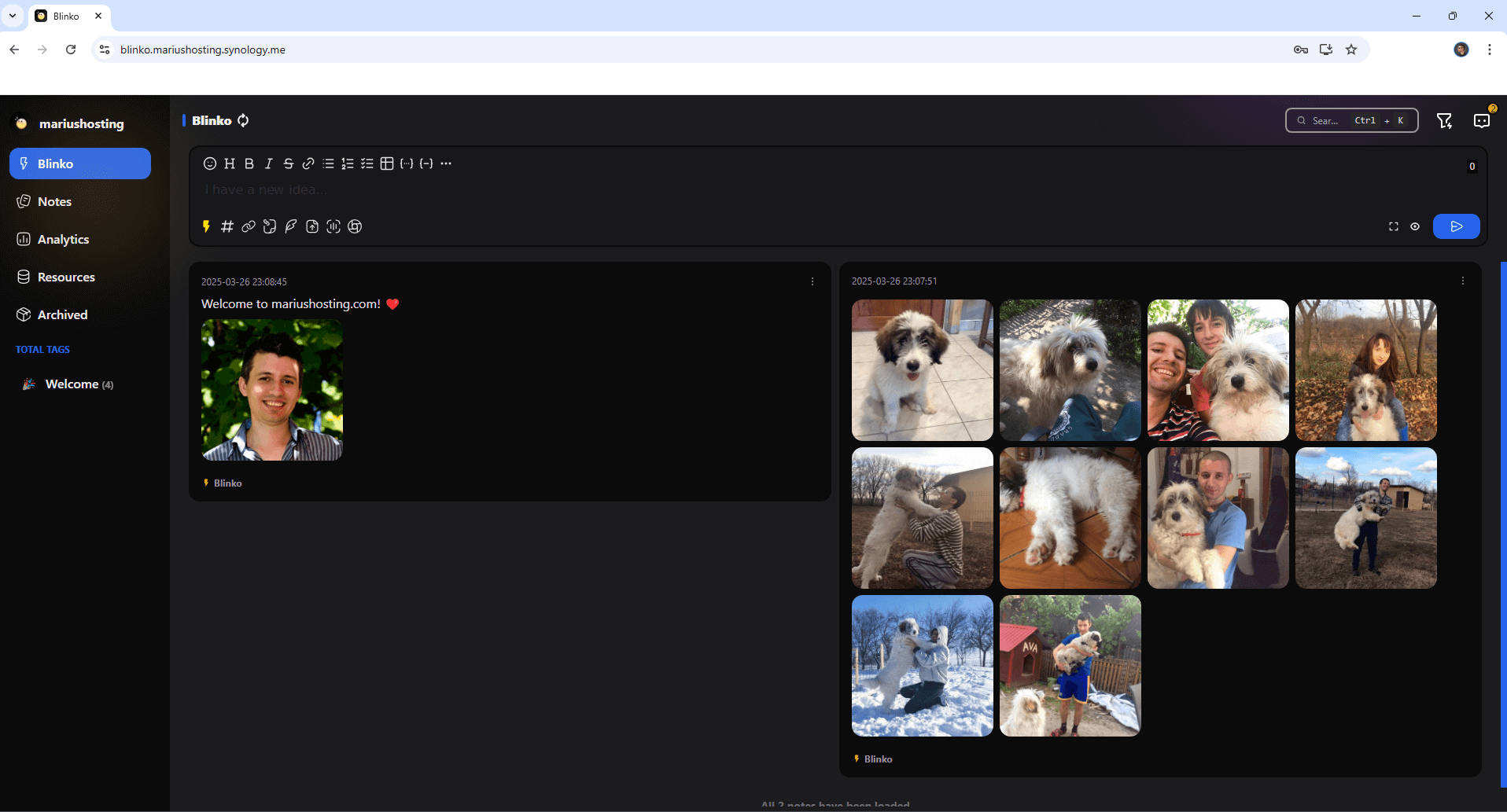
Enjoy Blinko!
If you encounter issues by using this container, make sure to check out the Common Docker issues article.
Note: Can I run Docker on my Synology NAS? See the supported models.
Note: How to Back Up Docker Containers on your Synology NAS.
Note: Find out how to update the Blinko container with the latest image.
Note: How to Free Disk Space on Your NAS if You Run Docker.
Note: How to Schedule Start & Stop For Docker Containers.
Note: How to Activate Email Notifications.
Note: How to Add Access Control Profile on Your NAS.
Note: How to Change Docker Containers Restart Policy.
Note: How to Use Docker Containers With VPN.
Note: Convert Docker Run Into Docker Compose.
Note: How to Clean Docker.
Note: How to Clean Docker Automatically.
Note: Best Practices When Using Docker and DDNS.
Note: Some Docker Containers Need WebSocket.
Note: Find out the Best NAS Models For Docker.
Note: Activate Gmail SMTP For Docker Containers.
This post was updated on Friday / February 20th, 2026 at 2:39 AM
